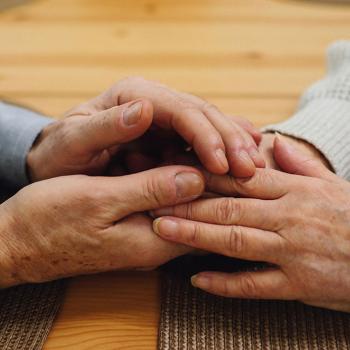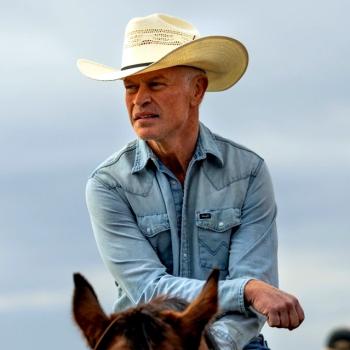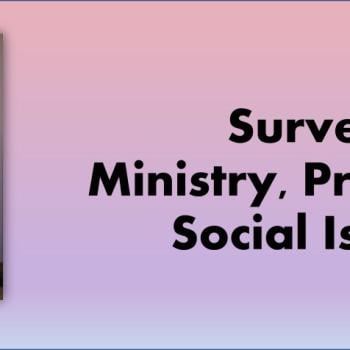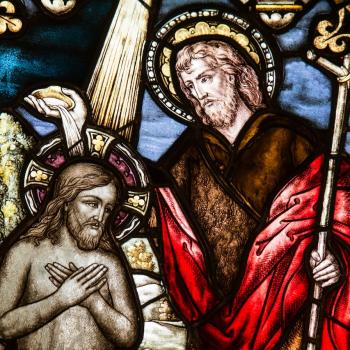 By Kamran Pasha - June 4, 2009
By Kamran Pasha - June 4, 2009
President Barack Obama will give a highly anticipated speech to the Islamic world on June 4th in Cairo. There is a great deal of excitement in the Muslim community to hear what a President who shares a middle name with the grandson of Prophet Muhammad has to say. There are many reasons why Obama's speech is important. But there are also many reasons why it really isn't.
Let me explain. Since his historic election, Obama has made substantial efforts to reach out to the Islamic community and rebuild bridges after the disastrous legacy of his predecessor George W. Bush. He has signaled a willingness to re-establish ties with Iran, has made some comments in sympathy with the Palestinians, and has called for an end to Israel's expansion of settlements in the West Bank.
More Jewish, Christian, Muslim perspectives on Obama's Speech here.
Most importantly, in a speech he gave to the Turkish Parliament in April, Obama repeatedly used a word that Muslims have craved to hear from American leaders: "respect." After decades of open contempt for Islam in the corridors of Washington and the news media, the word signals an acceptance that mutual respect is the cornerstone of building a new relationship between the West and the Islamic world.
All of this is important and indicates a dramatic shift away from a foreign policy based on imperial hubris that has marked the past eight years. And it is not surprising that Obama, who has Muslim relatives and spent his youth among Muslims in Indonesia, has natural empathy for the Islamic world and knows how to communicate with its people. I have no doubt that his epic rhetorical skills will be in evidence in Cairo this week, and his speech may very well be historic and have a profound impact on Muslim hearts and minds.
Most analysts expect that Obama will continue his current efforts to treat Muslims with respect and encourage real discourse between America and Islamic nations. And many believe he will emphasize his support for an independent and prosperous Palestinian state living in peace with Israel. Obama will probably also encourage Muslim countries to move toward democracy, and will likely have some critical things to say about the current political and human rights equation in the Islamic world. And he will in all likelihood pledge America's support for Muslims in helping their countries to improve and evolve into freer and more economically successful societies.
All of this is important and needs to be said. The fact that such words will come from the mouth of America's first black president, one who has Muslim relatives, will no doubt give them real weight for his Muslim audience. Obama's natural talent is the ability to inspire and effect change with the power of words, an ability that Muslims greatly respect, as our first and greatest orator was Prophet Muhammad himself.
But after the applause dies down, after the giddy cheers dissipate and are replaced by only echoes that linger like dying embers in a hearth, the Muslim world will still face very stark realities and challenges. And ultimately Barack Obama will not be the solution to the problems facing Islam today. It will be the Muslims that will have to bear the burden of making the painful reforms to revitalize our civilization, which has reached a pivotal moment in history.
It has been several decades since the Muslim world emerged from the greatest shock in its history since the Mongol destruction of Baghdad - the legacy of European colonialism. Most of our nations are new, less than a century old, and were carved out of the ruins of dead Islamic empires - the Ottomans in Turkey and the Middle East, the Qajars of Iran, and the Mughals of the Indian subcontinent. I was born in Pakistan, a Muslim country that didn't come into being until 1947, when my parents were toddlers. The extreme shock and humiliation of occupation by European powers has left the Islamic world in deep disarray and confusion.
Muslims have lost their sense of themselves as a confident, progressive community meant to serve as models and leaders for the world. Only a few hundred years ago, Muslim armies ruled Eastern Europe and stood poised to conquer Vienna. Prior to that we had created rich civilizations that were the envy of the world - the Abbasids of Baghdad and the Umayyads of Spain led human civilization in art and science. We had mastered the use of gunpowder in the 13th century, when Europeans were living in stone huts. And the idea that one day the primitive Europeans would not only dominate Muslims but quantum leap past us in science, art and technology was laughable.
But it happened. And we are now here. Unelected dictators, clinging to outdated political and economic philosophies, rule most of the Muslim world. Muslims who used to pride ourselves in treating women better than Christians (Islam gave women property and inheritance rights 1,300 years before Europe caught up) now find themselves having to defend the honor of their faith against claims of misogyny. Our education systems are still catching up to the West, and our commitment to the arts is shaky. Freedom of speech is curtailed in much of the Muslim world, even though the right to speak out against the ruler has long been enshrined in Islamic law.
And our greatest sorrow, the suffering of our brothers in Palestine, remains something that Muslims feel they can do nothing to alleviate. With Israel's nuclear weapons and economic and military support from the United States, Muslims feel powerless to help the Palestinians defend their lives, their homes, their human dignity. Seeing Israeli soldiers standing guard over the Al-Aqsa Mosque as Muslims pray is heart wrenching and shameful for a community that has loved Jerusalem since the days of Prophet Muhammad.
These are things that President Obama can do little to change. Indeed, when it comes to American foreign policy in the Middle East, Muslims are likely to be deeply disappointed in Obama. The reality is that unconditional support for Israel in general, and its right-wing politicians in particular, are deeply embedded into the Washington political culture. That bias will not change for decades, if ever. And despite his rhetoric in support of democracy in the Muslim world, Obama is unlikely to pressure our dictators to liberalize their societies. After the disaster of attempting to impose American power in Iraq, the United States has lost its taste for transforming other societies.
While the end of American imperial fantasies may be a good thing, it means that Muslims can no longer expect America to be on the forefront of their struggles for freedom and justice. America is, frankly, bankrupt and cannot afford an aggressive foreign policy of any kind. So Muslims must accept that Obama's words will likely be just that - words. We must take up the responsibility for transforming our own societies ourselves. America will not solve the Palestine problem. America will not bring us democracy or human rights. America will not advance our economic, educational and political stature. That is something only Muslims can and must do.
The Holy Quran tells us that every man is a "khalifa" - God's viceroy on Earth. The responsibility is own our shoulders to struggle for change, which is the true meaning of the word "jihad." No one else is going to carry our burdens. So we can take inspiration from President Barack Hussein Obama. We can take admonition from him. But ultimately we must take responsibility for ourselves in bringing Islam back to its true destiny - to be a beacon of hope and leadership for the world.
Kamran Pasha is a Hollywood filmmaker and the author of Mother of the Believers, a novel on the birth of Islam as told by Prophet Muhammad's wife Aisha. For more information please visit: http://www.kamranpasha.com.
1/1/2000 5:00:00 AM




